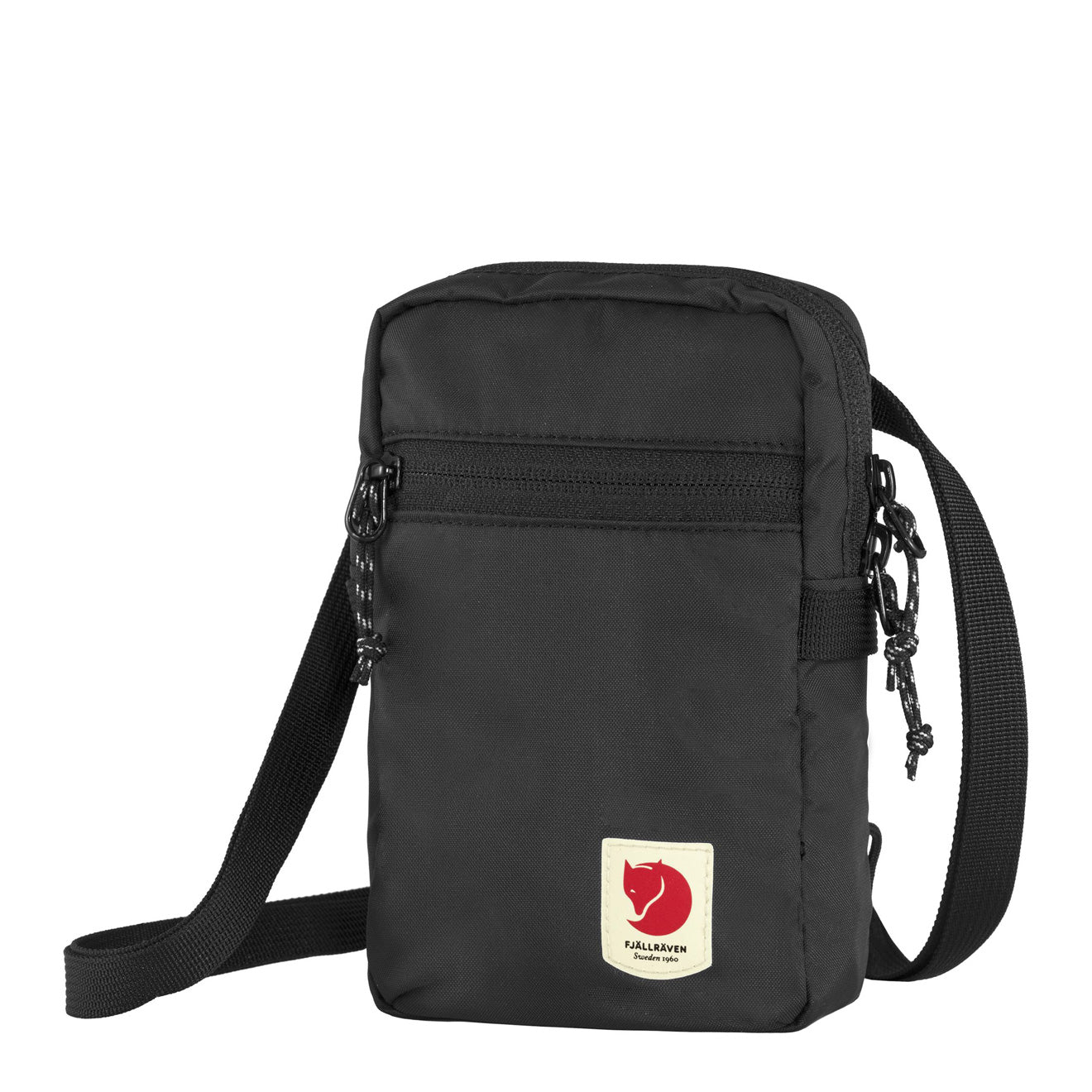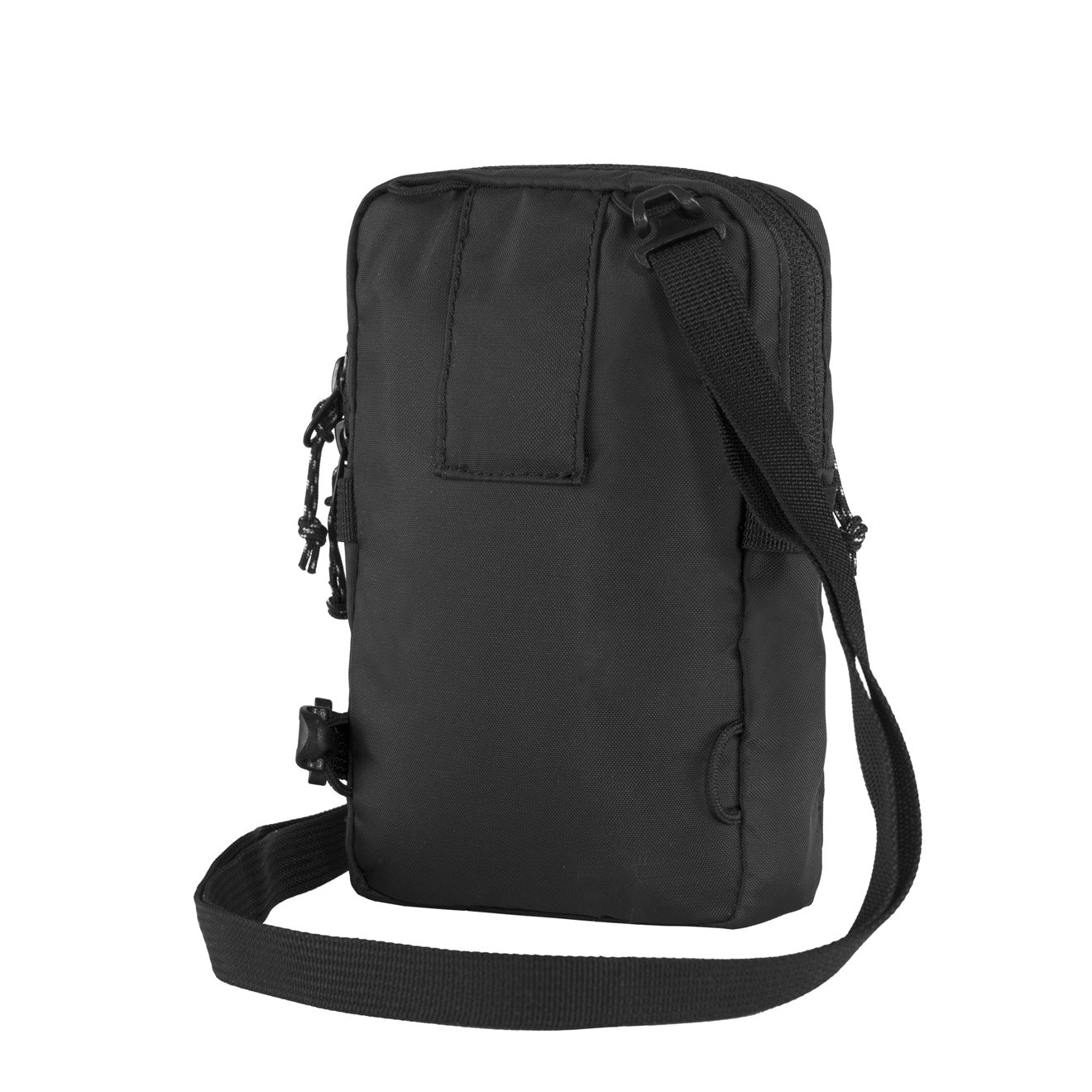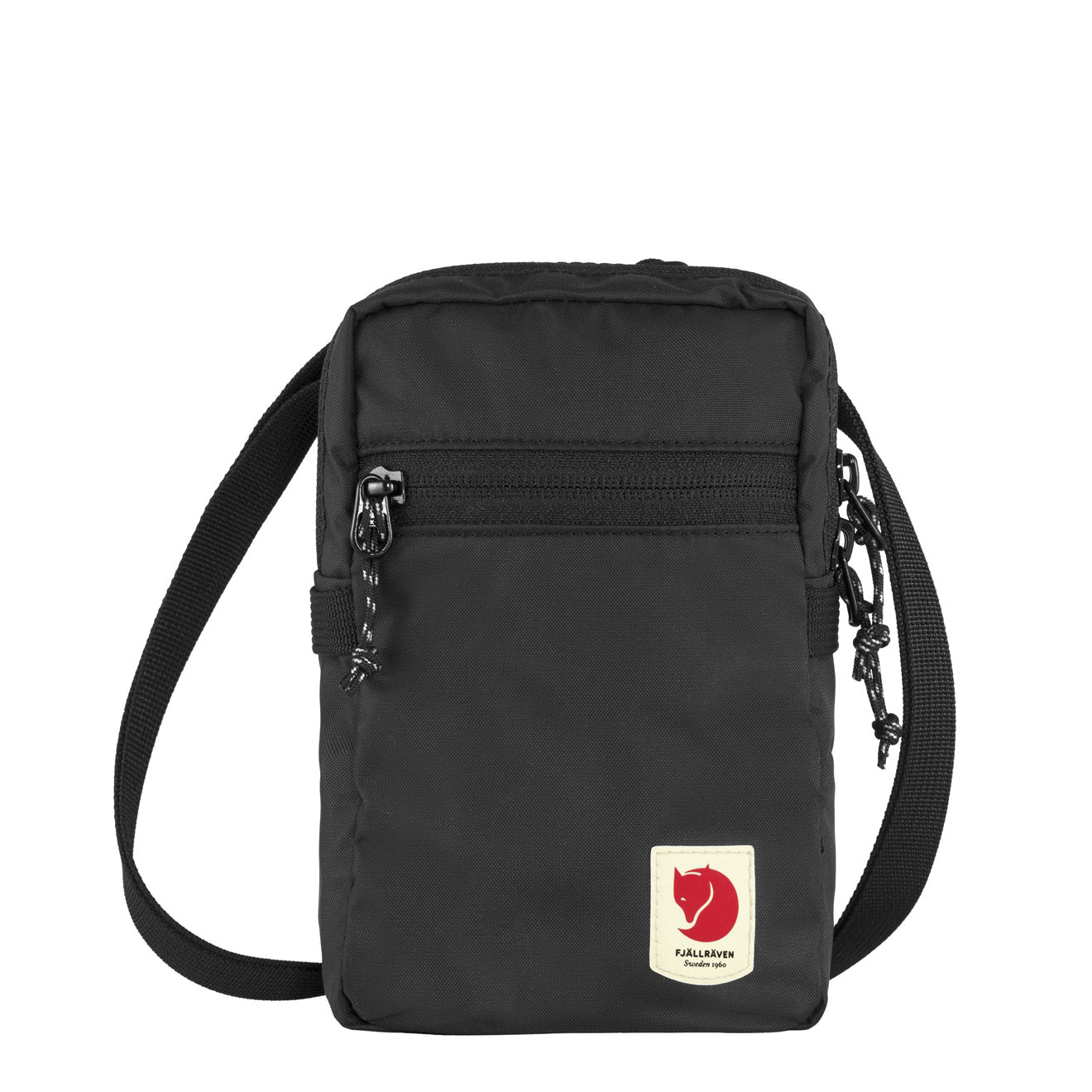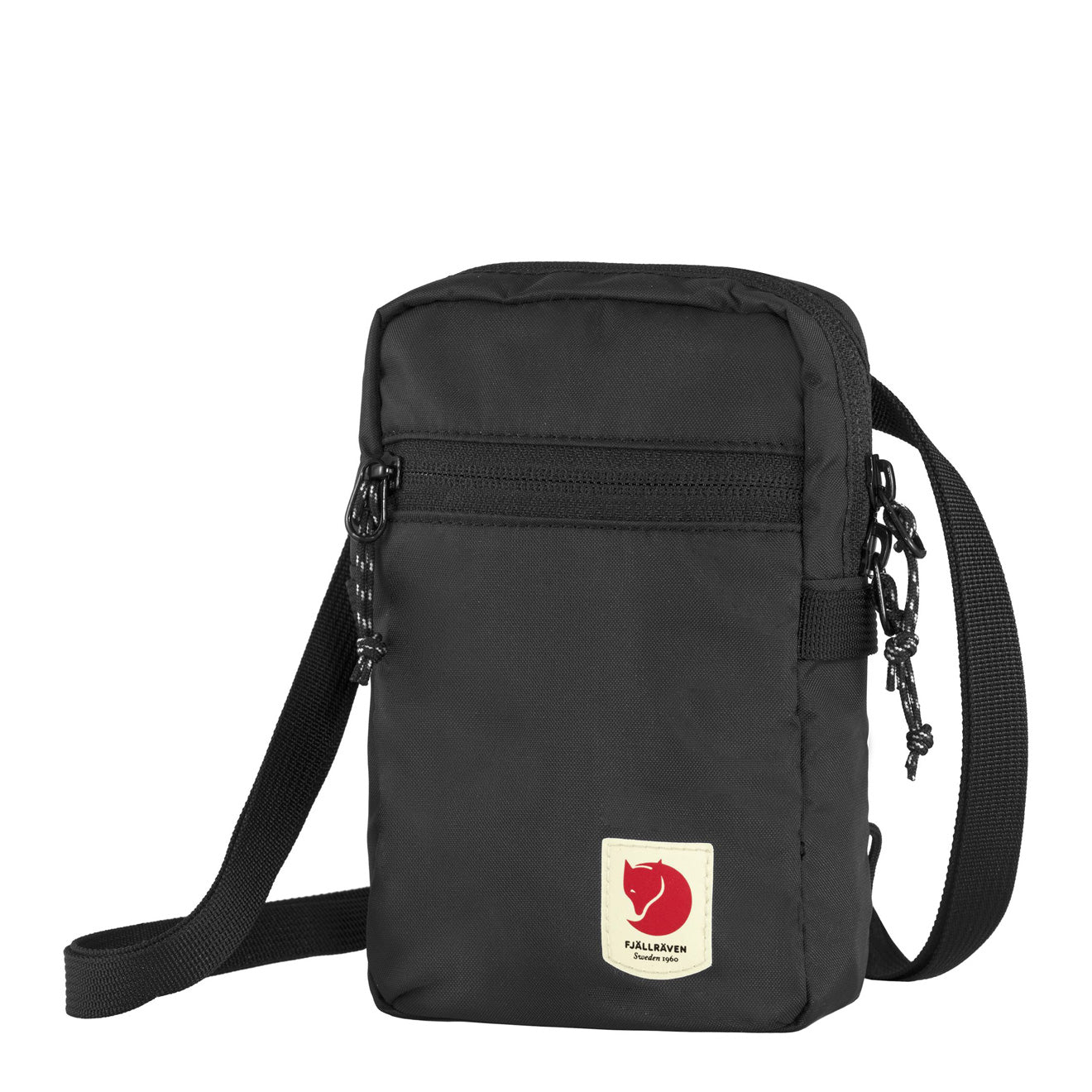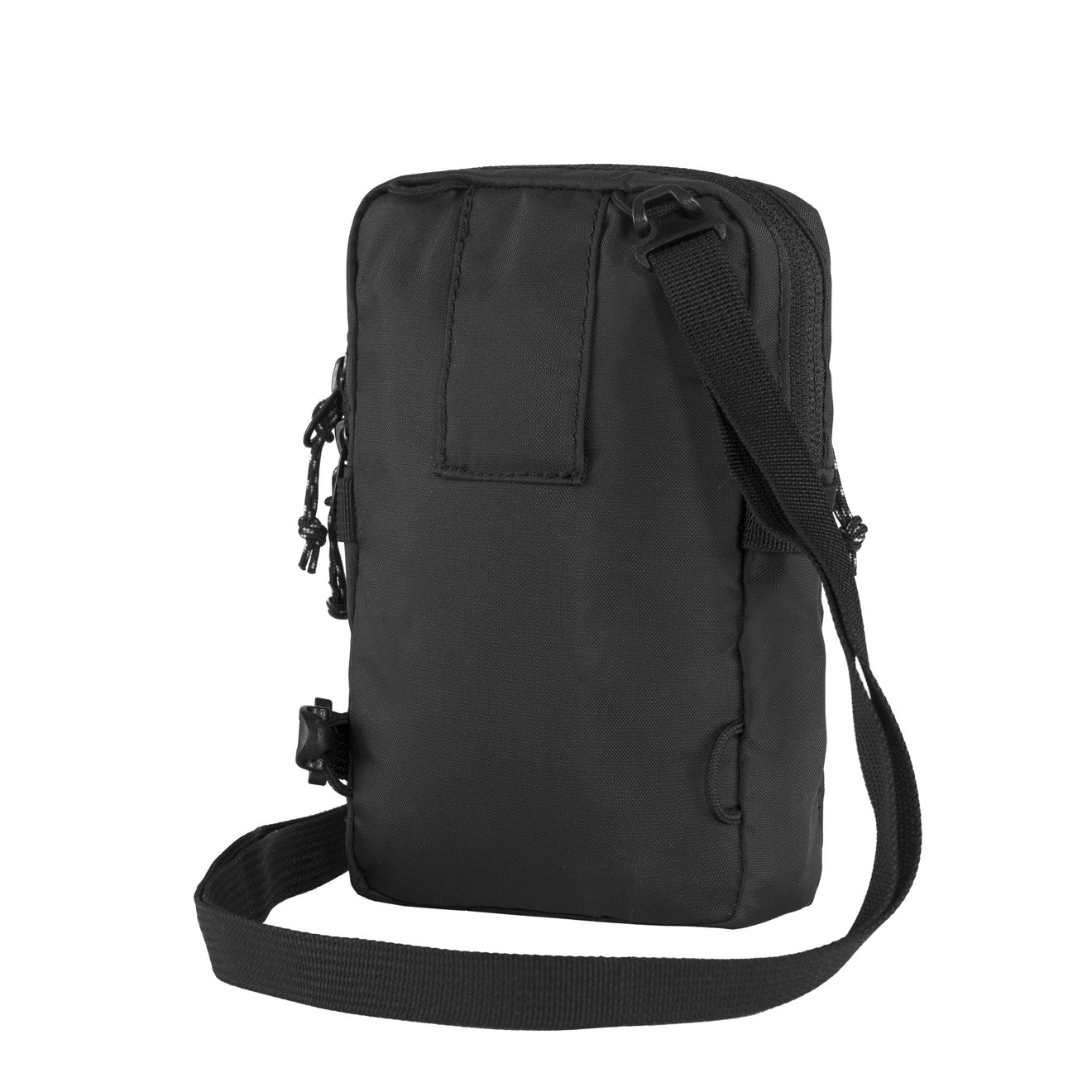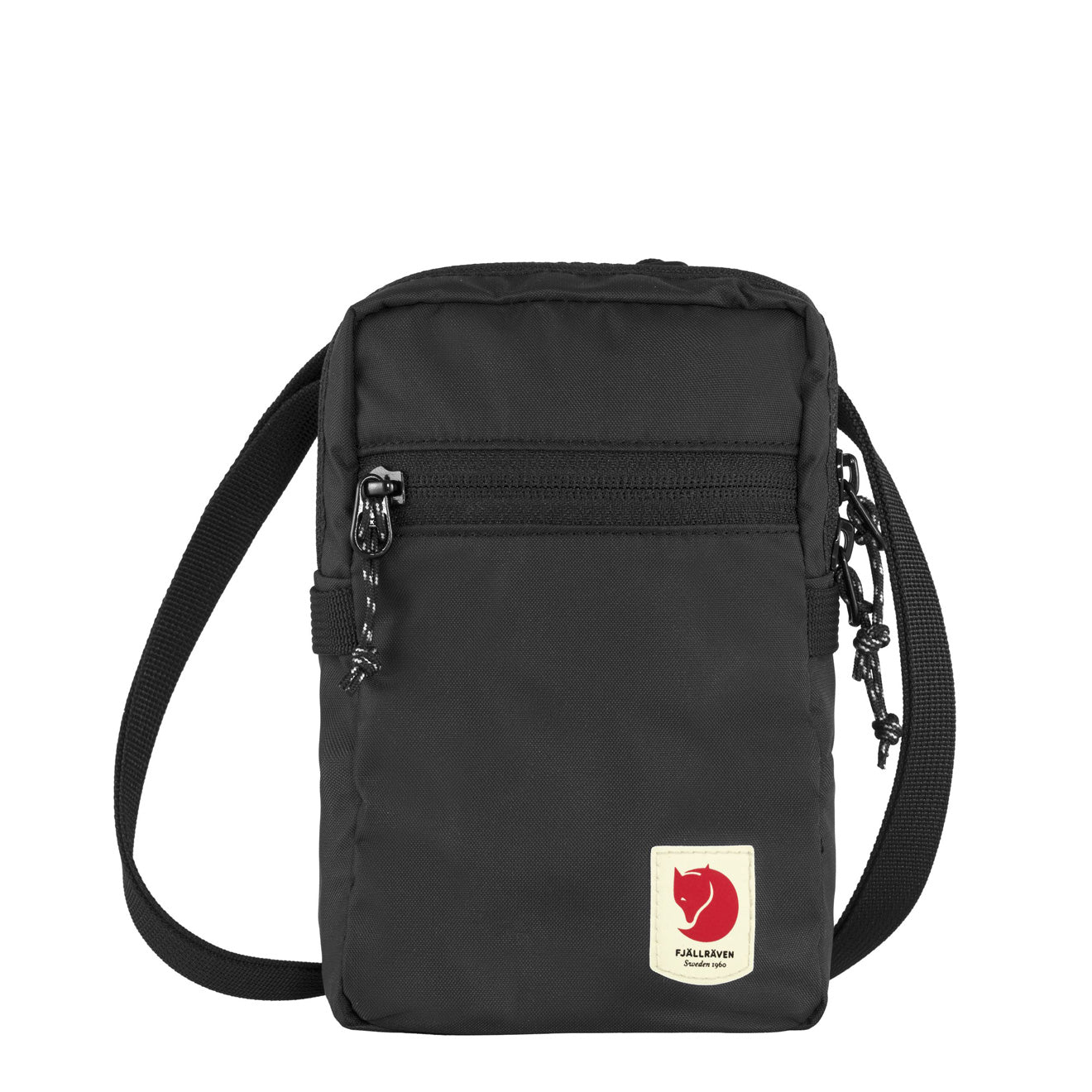Fjällräven High Coast Pocket Bag Black
Couldn't load pickup availability
Product Description
Product Description
The Fjallraven High Coast Pocket Bag in Black is a convenient, small bag in recycled polyamide, perfect when you just want to take your essentials with you when travelling and in everyday life. The main compartment is large enough for a smart phone and passport. An inside mesh pocket and an outside zippered pocket make it easy to keep your gear organised. Several attachment points and adjustable straps make for personalised usage: over the shoulder, on your chest or on a belt. The outer fabric is waterproof but not the zippers and seams, so the bag can handle getting wet but not being submerged.
Product Features:
- Height: 17 cm
- Width: 11 cm
- Depth: 4 cm
- Volume: 0,8 l
- Number of pockets: 2
Delivery
Delivery
Royal Mail have recently updated their service, whereby all orders are opted in to allow delivery to a Safe Place. If you do not want your parcel delivering to a Safe Place, please download the Royal Mail app and 'OPT OUT' for future deliveries. You can also specify your preferred Safe Place on the Royal Mail app
United Kingdom
- Free Standard Delivery for all orders over £50
- Royal Mail Standard Delivery - £3.95
- Express Delivery via DHL / Royal Mail Tracked 24 - £4.95
- Next Day Working Delivery* - £8.95
- Saturday DPD Express Delivery* - £12.95
*Please note for orders to qualify for Next Day Delivery they must be ordered before 2PM and for Saturday Delivery before 2PM on Friday.
European Union
-
Free Standard Delivery for all orders over £150
- Standard Delivery via Royal Mail - £8.95
- Express Delivery via FedEx / DHL - £18.99
All orders are duties and taxes paid. This means you will not incur any further charges when ordering through our site in addition to the advertised price.
USA
-
Free Standard Delivery for all orders over $70
- Standard Delivery via Royal Mail – $14
- Express Delivery via FedEx/DHL – $22
Due to the incoming changes to US tariffs, any duties owed will be calculated at checkout. We will then pay on your behalf and there will be no additional charges to pay.
*Please note - Any duties and taxes paid on US shipments are strictly non-refundable as they are paid on your behalf to custom's authorities upon import.
Canada
- Free Standard Delivery for all orders over CA$100
- Standard Delivery via Royal Mail – CA$20
- Express Delivery via FedEx/DHL – CA$31
Rest of World
-
Free Standard Delivery for all orders over £200
- Standard Delivery via Royal Mail - £9.95
- Express Delivery via FedEx / DHL* - £24.95
Notice to Russian, Ukrainian & Israeli Customers: We are suspending all services to Russia, Ukraine & Israel due to transportation issues. No orders for these countries will be accepted. We apologize for any inconvenience caused.
